
Archives
Contribute
| Third SAATh Festival Celebrates South Asian American Theater |
Press Release
10/04/2024
Off-Kendrik, a Greater Boston-based non-profit theater group, organized the South Asian American Theater (SAATh) Festival on September 20-22 at the Mosesian Center for Arts, Watertown, MA. This one-of-a-kind event was a grand celebration of diversity of South Asian and Asian cultures through theater. This was the third iteration of this unique celebration of South Asian theater in the US. This year, there were ten plays in five different languages including Marathi, Bengali, Kannada, Hindi and English with supertitles in English to make it accessible to a diverse audience. Over the last 3 years, the festival has grown in strength and reputation. The community turned out in force to support ethnic theater, with over 600 theater lovers from New England enjoying the plays on offer. This year, the organizers focused on local theater groups that showcased important and original work. The festival kicked off on Friday, September 20, with two Marathi plays: Kafir, by Jilebee Arts, and Around the Globe, staged by Kalashri of Boston. In Kafir, the author and director Sudhanwa Agawekar presented a meaningful story of trust and distrust in the backdrop of ongoing terrorism in Kashmir. This deep and somber play was followed by a hilarious science fiction novel written by renowned Marathi Sci-Fi writer, Laxman Londhe, and directed by his daughter Rucha Londhe. Around the Globe, an engaging, sharp, innovative, and well-presented comedy, narrated the story of fulfilment of a common man’s dream through technology. Saturday, September 21, commenced with another Marathi play, Drushti, by Anubhuti, a New Jersey-based theater group. Authored by Yogesh Soman and directed by Sanjay Shetye, Drushti was a story of building confidence and dependency between a teacher and student, both visually challenged. The seamless execution and convincing portrayal of the characters in this thought-provoking, two-character play created empathy and a deep connection of the audience with the characters in the play. This was followed by a lively seminar on “Connecting South Asian, Asian and other minority communities through Progressive theater” with artists from New England and New York sharing their experience. An English play, Madho from the Almast Media (Sikh foundation) followed the seminar. Madho, a musical presentation with enchanting kafi’s, fictionalized the life of a sixteenth century Sufi poet, Madho Lal Hussain. The play created mystic romanticism amidst the complexities of caste, religion, gender, and sexuality. The vocalists and musicians created a spell with their heart-wrenching melodies. The narrator, playing Maqbool, held the audience captivated with his skillful storytelling. The final half had a one person play reading, And Then I Met You, by Hypokrit Live Arts, New York. Directed by Arpita Mukherjee and Neil Gupta, the play was a satirical and unconventional presentation of a young New Yorker woman’s dating journey. This was followed by a Bengali play, An (Extra)Ordinary Incident by ENAD, Boston. Written and Directed by Shanto Ghosh, the play depicted how an apparently innocent interaction between an acting-school teacher and his student is followed by harassment complaints by the student, leading to life changing consequences. The play, with its crisp storyline, sharp dialogues and convincing performances raised several questions on rights and wrongs and left a long-lasting effect on the audience on the perspectives that alter these. Sunday showcased four more plays by local theater groups. The first was in Hindi, a gripping drama on military justice, Court Martial, written by Swadesh Deepak, directed by Madhu Nene and presented by Natyaranga and StorySunao. This on-stage courtroom trial came alive with superb performances by the actors, and the audience remained glued to their seats as the story unfolded unexpected twists of personal vengeance, taboos, social injustice, and casteism. This was followed by Yakshagana, a folk theater in Kannada, by Yaksha-Loka Boston. This unique theater art from Karnataka, India, narrated the endearing mythological story of love between two brothers, the mischievous Krishna and Balarama, through songs, dances and narration. With its elaborate and colorful costumes, authentic make-up, extemporaneous dialogs, interspersed with ethnic dance and songs, Yakshagana was a vibrant theater art presentation. Four short plays, Buried Alive, Chagrin Valley, Happy Daughter and Troublemaker directed by Alison Y Qu, Michelle M. Aguillon and Dev Luthra were seamlessly orchestrated by the Asian American Playwright Collective (AAPC). The plays depicted human relationships, mental health issues, immigrants’ struggles and fighting for justice. The stories blended into each other as the actors skillfully moved across the stage changing characters, carrying their props with grace and harmony and winning the hearts of the audience through their presentation. The final presentation was a Bengali play by the host, Off-Kendrik team, Lakshmaner Shaktishel, written by none other than Sukumar Ray, a ridiculous musical representation of an episode from the epic Ramayana. While this high energy, action-packed play with its live music, songs, dances and comical representation of the epic characters took us back to our childhood days, Off-Kendrik’s Artistic Director, Sankha Bhowmik very innovatively set the play in the current backdrop of war and violence and evoked deeper questions on our resilience to the unrest and violence in today’s world. The cast and crew consisted of children and adults who performed with vigor and their obvious enjoyment on stage brought the audience alive. Lakshmaner Shaktishel was surely a superb play to end the third SAATh festival with pomp! Details of the plays can be found at www.offkendrik.com/saath. The SAATh Festival was born out of the desire to use performative arts as a platform for immigrants to share their experiences to push beyond stereotypes of South Asian communities. The three-day celebration of performances addressed a range of issues in multiple languages, from politics in countries of origin to complexities of ethnicity, gender, and sexuality. It offered insights into the diversity of the South Asian-American diaspora, and provided an opportunity for community-building, education, and enrichment for people both outside the community and within. Mona Mandal, an Arlington resident who attended all three days of the festival, was thrilled with the variety of artistic work. “Kudos to the hard work, dedication and imagination of the whole SAAth team for a wonderful weekend of theater for the larger community - truly a phenomenal platform for cross cultural storytelling in the South Asian diaspora,” she said. Madhu Nene, the director of Court Martial, echoed Ms Mandal’s sentiments. “SAATh is a very unique and interesting theater event. It has very successfully created a forum where different South Asian amateur theater groups get an opportunity to showcase their talents and present plays in a variety of styles and languages that you normally don't get to watch here. This bringing together of people from diverse ethnic backgrounds is an important achievement of the SAATh Festival. I enjoy working with the SAATh and Off-Kendrik team and love their passion for theater,” she said.
You may also access this article through our web-site http://www.lokvani.com/

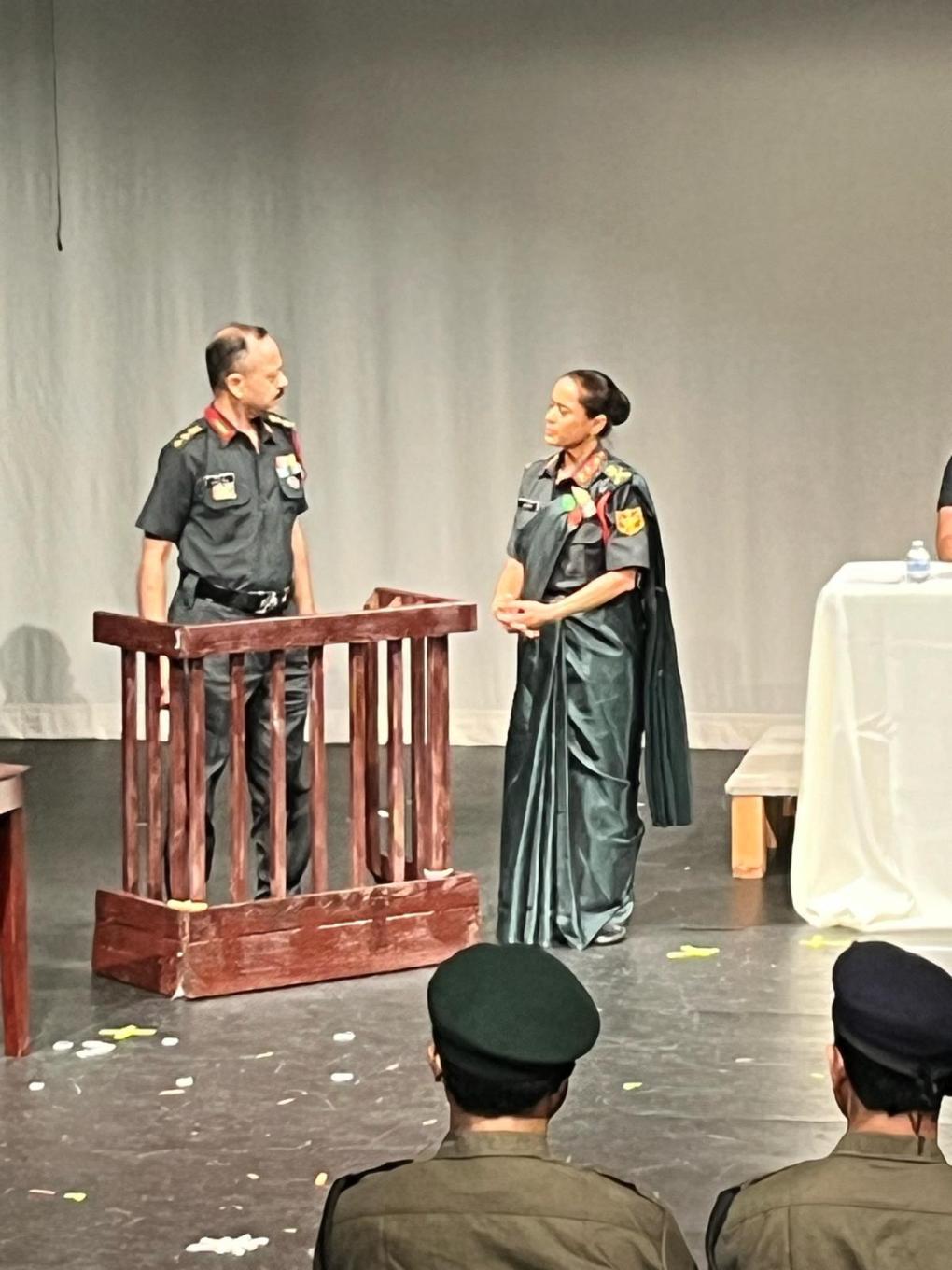
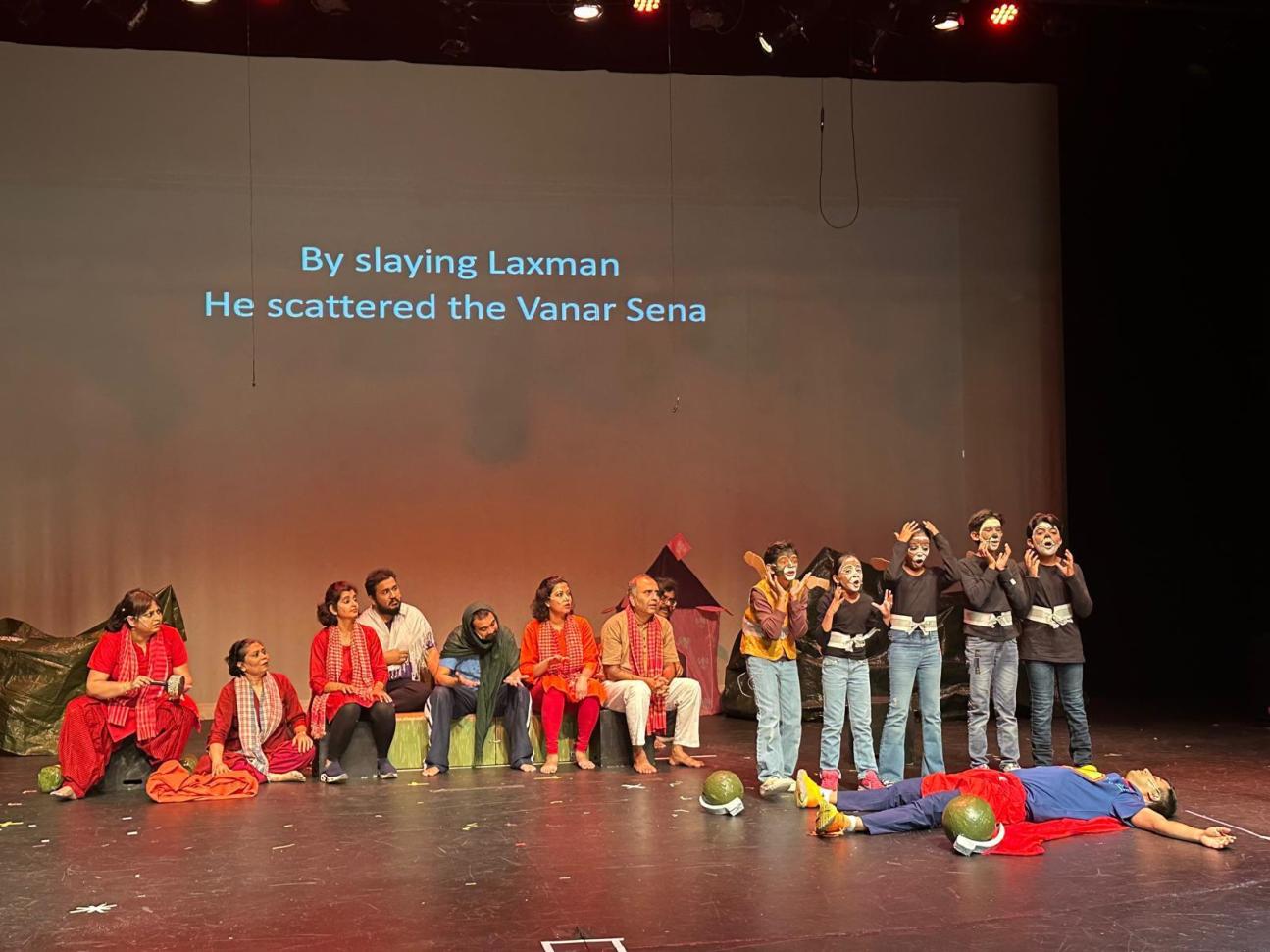
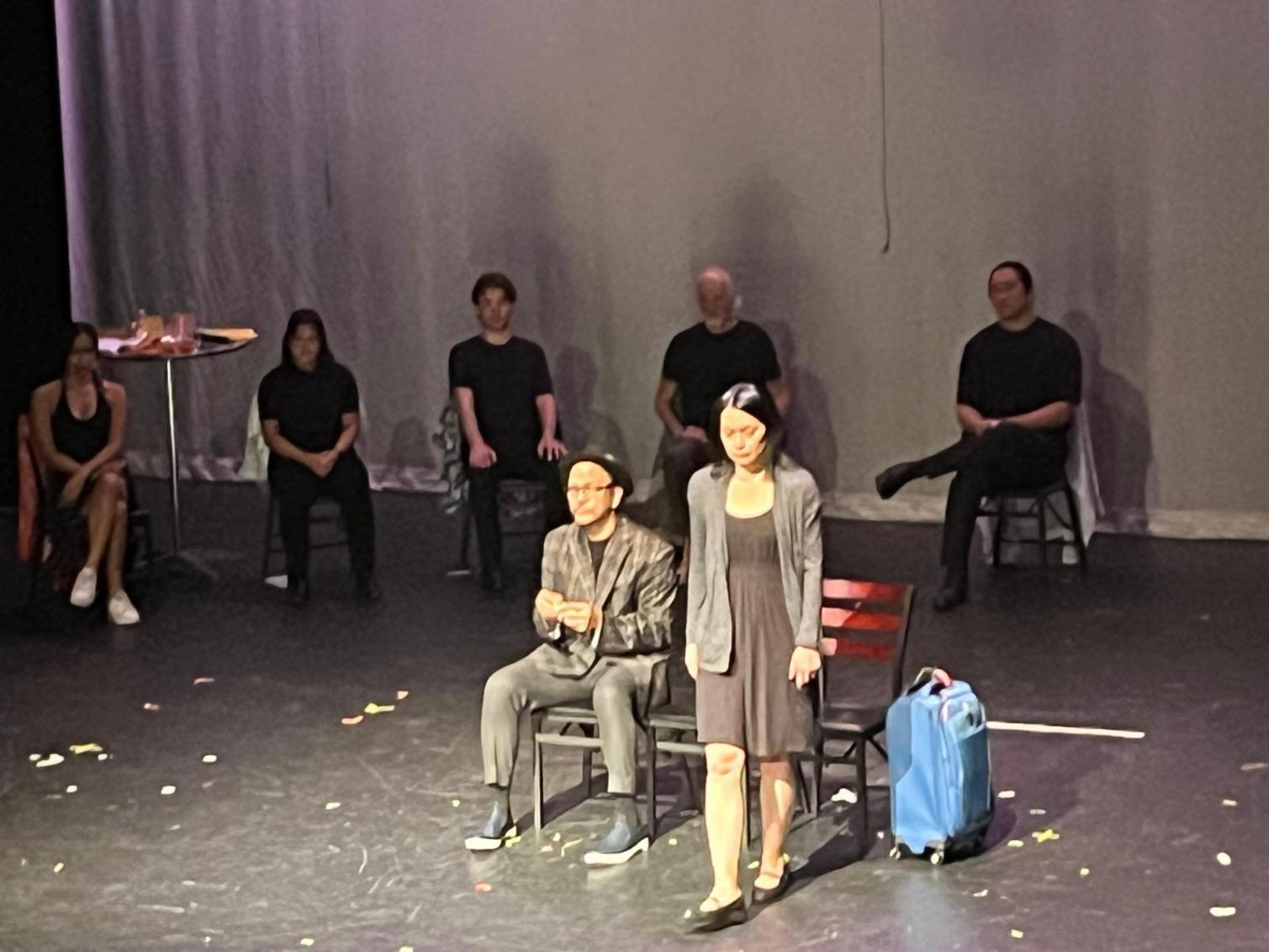
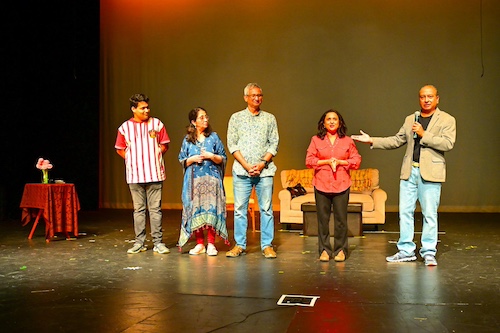
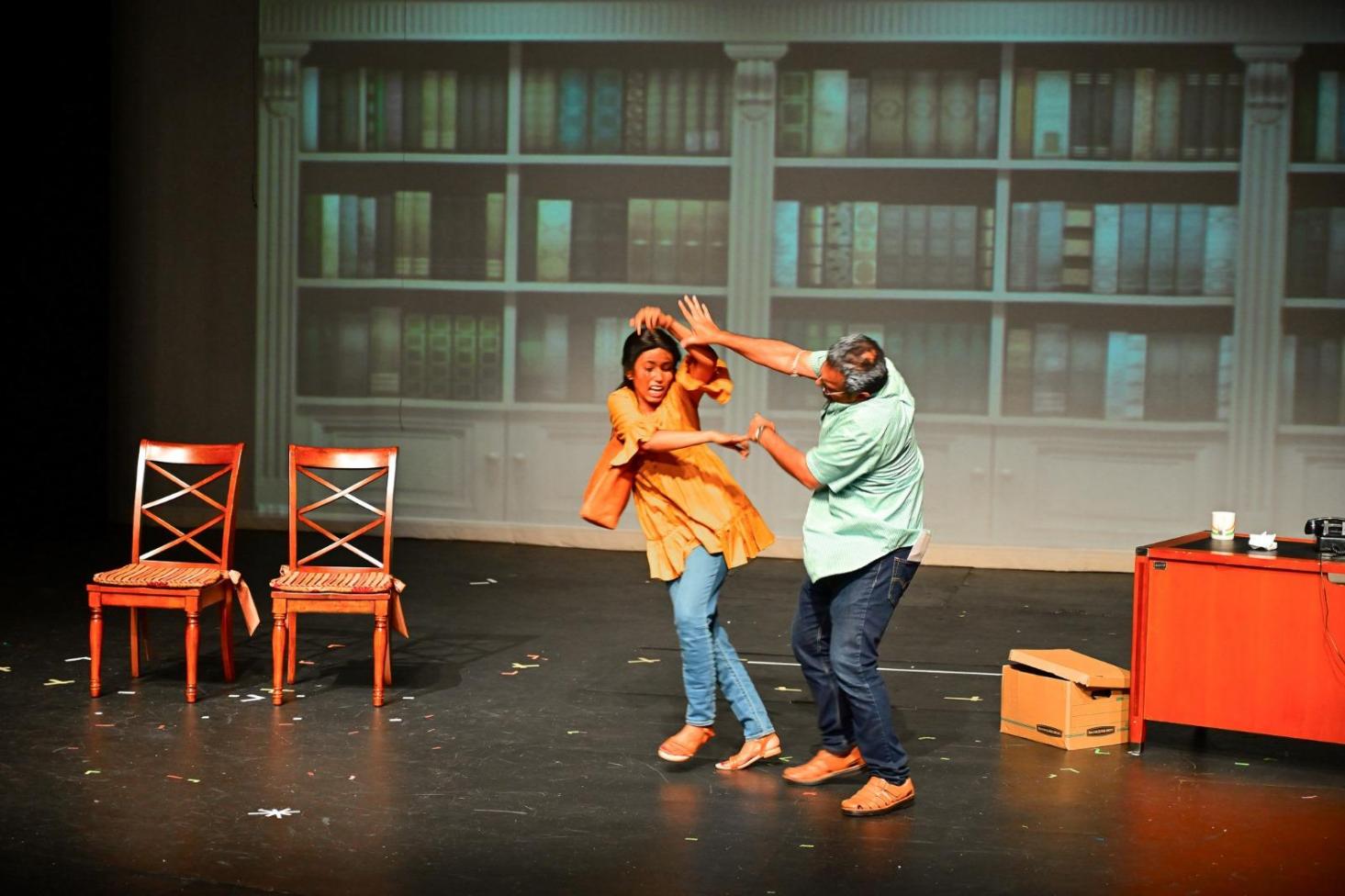
.jpg)